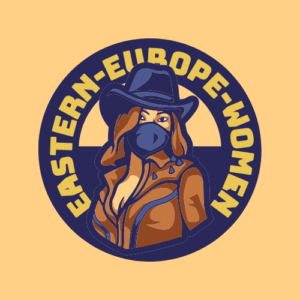Eastern Europe, a region steeped in history and cultural richness, is home to a diverse tapestry of women who embody resilience, ambition, and a deep connection to their heritage. From the vibrant streets of Warsaw to the picturesque villages of Slovenia, Eastern European women navigate a complex landscape shaped by tradition, geopolitical shifts, and the pursuit of modern aspirations. This article explores the multifaceted identities of Eastern European women, highlighting their roles in society, challenges they face, and the evolving narratives of gender dynamics in the region.
Cultural Heritage and Diversity
Eastern Europe is characterized by its rich cultural heritage, influenced by centuries of interactions between Slavic, Baltic, Balkan, and other ethnic groups. Women from this region often carry a strong sense of cultural identity, shaped by traditions, language, folklore, and religious practices unique to their communities. While diversity is celebrated, common threads such as hospitality, familial bonds, and respect for elders weave through the fabric of Eastern European societies.
Traditional arts and crafts, including embroidery, pottery, and folk music, serve as expressions of cultural identity and communal pride. Many women actively participate in preserving these traditions, passing down skills and stories to future generations amidst the backdrop of modernization and globalization.
Education and Professional Advancement
Education has been a transformative force for Eastern European women, providing opportunities for personal growth and professional achievement. Throughout history, access to education has empowered women to pursue careers in fields ranging from STEM (Science, Technology, Engineering, and Mathematics) to humanities, politics, and entrepreneurship.
Despite progress, challenges such as gender bias, wage disparities, and limited representation in leadership roles persist. Women across Eastern Europe continue to advocate for gender equality in the workplace, pushing for policies that promote equal opportunities and support for women in traditionally male-dominated fields.
Beauty Standards and Cultural Expressions
Eastern European women are often celebrated for their diverse and distinctive beauty. From the fair-skinned Slavic features of Russia and Ukraine to the olive-skinned elegance of women from the Balkans, beauty standards vary across the region. Fashion and personal style reflect a blend of traditional attire and contemporary trends, with vibrant colors, intricate patterns, and handmade accessories showcasing cultural pride and individual expression.
Cultural expressions extend beyond fashion to include literature, cinema, visual arts, and performing arts. Women contribute to these fields as writers, filmmakers, artists, and performers, enriching Eastern Europe’s cultural landscape with their creativity and unique perspectives.
Family Dynamics and Social Roles
Family plays a central role in the lives of many Eastern European women, shaping their values, priorities, and social interactions. Multi-generational households and strong kinship ties are common, fostering a sense of community and collective responsibility. Women often take on caregiving roles for children, elderly relatives, and extended family members, balancing these responsibilities with professional pursuits and personal aspirations.
In recent decades, changing societal norms have influenced family dynamics, including attitudes towards marriage, divorce, and parenting. While traditional values of loyalty and commitment endure, women are increasingly empowered to make choices that align with their individual goals and aspirations.
Challenges and Resilience
Eastern European women have confronted numerous challenges throughout history, including political upheavals, economic transitions, and social inequalities. The legacies of communism and post-conflict reconstruction have shaped their experiences and contributed to disparities in areas such as healthcare, education, and employment opportunities.
Despite these challenges, Eastern European women have demonstrated resilience and perseverance in advocating for their rights and advancing social change. Women-led initiatives and grassroots movements have emerged to address issues such as gender-based violence, reproductive rights, and environmental sustainability, highlighting the role of women as catalysts for positive transformation in their communities.
Conclusion
Eastern European women embody a complex blend of tradition, resilience, and aspiration in a region shaped by historical legacies and contemporary challenges. They navigate a dynamic landscape where cultural heritage intersects with modernity, influencing their identities, roles in society, and contributions to global discourse.
As Eastern Europe continues to evolve, so too do the opportunities and challenges facing its women. Celebrating their diversity, achievements, and contributions is essential to fostering inclusive societies where women are empowered to thrive, innovate, and lead in every aspect of life.
In embracing the multifaceted identities of Eastern European women, we honor their heritage, amplify their voices, and support their ongoing journey towards equality, justice, and dignity in a rapidly changing world.
